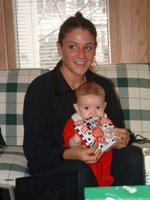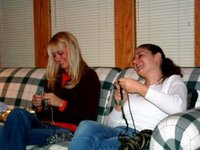Things Accomplished, Things Left Undone
There are so many things I’d looked forward to doing with you that now I’ll never get to do: I wanted to walk you down the aisle, give you away at your wedding, and embarrass you by crying. I had hoped to get a call one day asking my advice about graduate school. I wanted to watch you watch Shaylyn win a track meet or kick a goal or demolish a debate opponent. I was looking forward to snickering quietly and looking innocent as you complained about how Shaylyn was “very bright, but soooooo lazy!” and asking how to motivate her to do better in school. (Apparently this bright-but-lazy thing runs in the family.) I wanted us to go to one more baseball game together. I had thought that one day during my retirement, I’d be sitting around tying flies or something, and wondering why I hadn’t accomplished more with my life; and then you’d walk in and seeing you would remind me that I’d accomplished quite a lot, really.
I thought I’d get to do all of these things, and many, many more, but I was wrong.
Still, there are so many things I did get to do with you: I took you to your first major league baseball game. (“Dad,” you said at four years of age, while looking over the immaculate field at what was then Jack Murphy Stadium, “Why doesn’t our yard look like that?” So we had our first—and last—discussion about what a groundskeeper does.) I got to bait your hook the first time you went fishing. (“Eeeew!” you said. “And we hafta do this every time?!”) I got to watch you change (almost overnight, it seemed) from a gawky, surly teenager (dragging your hair through your spaghetti as you ate while looking down at your plate) to a beautiful, kindly, sweet-tempered young woman. I got to hold your baby girl in my arms when she was only a few days old. (You were the best mommy I’ve ever seen. Lesley and I were amazed at your patience, your maturity, and your love.) I went to a slew of graduations—pre-school, elementary school, high school, and (finally!) college. (And I cried at every one of them.)
When I’m feeling down, I think about all of the things I’ll miss, all of those “firsts” in which I won’t get to take part. When I’m feeling better, I remember all of the things we did get to share. Today I’m feeling better.
Love,
Dad






